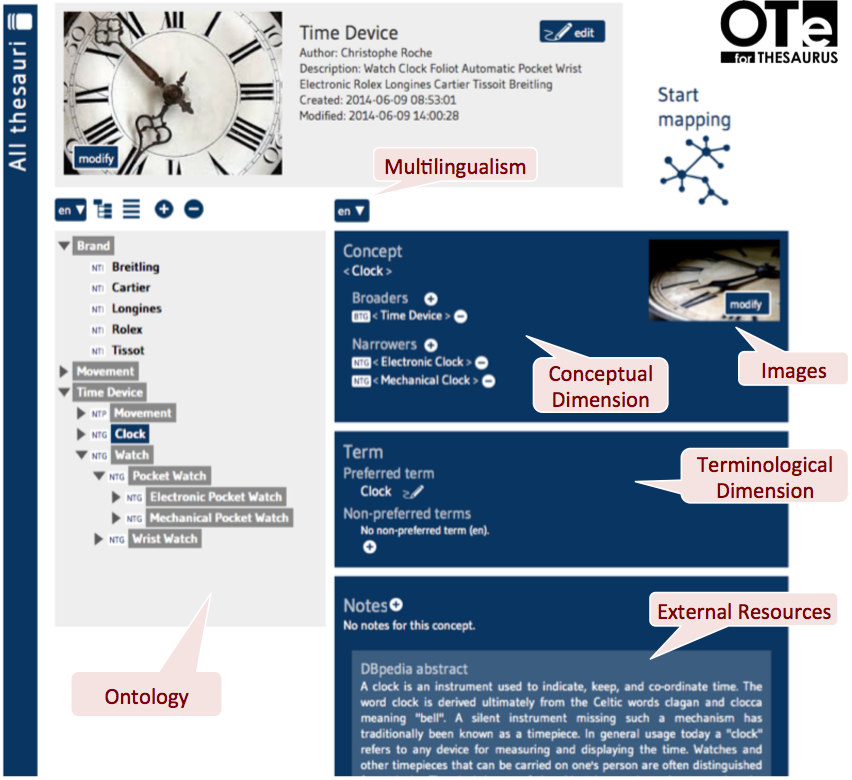Thesaurus
Making collections accessible to users speaking different languages raises several issues among which the multilingualism problem. Finding equivalent terms as well as mapping thesauri require a common conceptualisation or at least “compatible” conceptualisations.
In that context, ontology of the knowledge engineering, defined as a formal specification of a domain conceptualization, is one of the most promising perspectives for the concept system of thesaurus and terminology. By distinguishing and combining the two conceptual and linguistic dimensions, ontoterminology enables a more comprehensive understanding of the domain, and a more precise description of collections in relation to the domain knowledge. It also enables to improve search functionalities by using both the linguistic relationships between terms and the logical properties of the relationships between concepts. At last, mapping thesauri can gain benefits from works on ontology alignment.
The ontoterminology approach of thesaurus – an ontoterminology is a terminology whose conceptual system is a formal ontology – was used into different European projects dedicated to cultural heritage (Linked Heritage, AthenaPlus), to multilingual knowledge sharing (SIERA), and to multilingual terminology (University of Liaocheng).

This approach is illustrated with OTe-for-Thesaurus, a thesaurus editor based on ontoterminology. In accordance with the ISO 25964-1 and 25964-2 Standards on Thesaurus, the OTe-for-Thesaurus provides functionalities for creation, editing, and mapping thesauri. Based on the SKOS interchange format, it also allows importing and exporting thesauri. The TMP2, stands for Thesaurus Management Platform version 2, is the version of OTe-for-Thesaurus developed for the AthenaPlus European project.
Multilingual terminology: the ontological approach
C. Roche, L. Damas, J. Roche. CIDOC 2014 (International Committee for Documentation), Dresden (Germany), 6-11 September 2014
